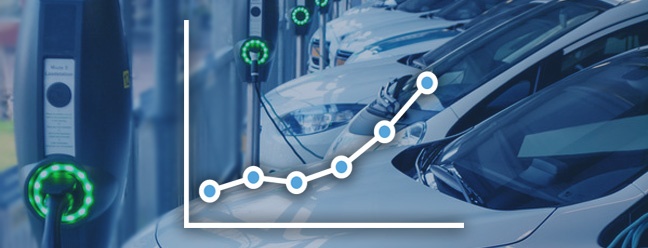

Oct 21 2015
For more than 100 years, the environment has been polluted with vehicle emissions. I don't claim to be an environmental expert, but the toxins released from gasoline and diesel powered vehicles are not ideal. And based on recent news, it turns out that many "clean" diesel vehicles aren't all they were cracked up to be! Let's face it, at one point or another we will need to either change our driving habits or support plug-in hybrid and electric technology.
The U.S. Department of Energy and several other organizations recognize this and provide resources to educate consumers on the advantages of partial and fully electric vehicles. But what is the recipe for persuading consumers to adopt the use of electric vehicles?
This article highlights a few of the common consumer objections we've found and how these state utilities and/or their solution providers can overcome them by presenting vehicle data in an user-friendly way that makes research and comparison easy.
Currently, plug-in hybrids (PHEVs) and electric vehicles (EVs) do have higher MSRPs than traditional fuel vehicles. But as they become more widely adopted and the cost of batteries decrease, their prices will start to decrease as well. There are many other variables to consider that make electric vehicles more affordable.
Money spent on gas decreases with higher MPG in plug-ins. There are no gas prices associated with fully electric vehicles and most public charging stations are still free.
Many plug-ins and electric vehicles qualify for a federal tax credit ranging from $2,500 to $7,500 (depending on battery size) to help offset the cost.
More than 50% of the U.S. states have some sort of incentive(s), some including tax exemptions, a certain percentage of income tax credit, rebates, and exemption from state inspections or public parking meters.
The problem is that too much extra work is required for consumers to determine the final price of PHEVs and EVs with all these variables contributing to the cost.
State utility and other early adopter websites can integrate a vehicle comparison tool, powered by vehicle data, for consumers to easily identify the differences in price between traditional fuel models and their hybrid equivalents/comparable electric vehicles. Contributing price variables, such as fuel cost, federal tax credit, state incentives, should be factored in as well to paint a more accurate picture of total hybrid/electric vehicle cost.
When our cars run low on fuel, in most scenarios it's easy enough to pull over at a gas station close by. However, if a fully electric car's battery is running low, recharging the battery may not be as simple.
At least that's the notion many consumers have...
The electric station infrastructure is growing rapidly with over 60k charging spots in U.S., all of which can be found on websites like chargepoint.com, plugincars.com, and carstations.com. These sites include maps with the pinpointed locations that can be filtered by zip code, and on some sites by real-time availability status, plug type, and cost.
However, on many of these sites there is a disconnect between plug-in/electric vehicle models and charging infrastructure. Consumers considering switching to hybrid or fully electric powered vehicles should be able to access all of this information with little to no effort.
A state utility website or solution provider that implements charging station availability and compatibility right on the electric vehicle overview and detail pages would make the user experience much more powerful. Some of the more advanced vehicle data solutions not only provide vehicle details but can also help tie in charging specs with station infrastructure details. This would make PHEV and EV research much less complex with all valuable information centralized and ready for comparison.
Who has time to wait around for their car to charge? This isn't as great of an issue for plug-in hybrid vehicles that also run on gas or EV owners with a charging setup at home. However, for many drivers there is no other option but to recharge at a public spot.
Fortunately, the availability of DC charging stations is expanding. These stations can recharge a battery pack to 80% in around 20-30 minutes. However, not all electric vehicles are fitted for DC and require additional equipment for compatibility. As electric vehicles become more widely adopted, DC charging will more than likely become standard.
Since vehicle charging specs are not universal, charging compatibility and charge time data need to be easily accessible when researching and comparing PHEVs and EVs.
Integrate a vehicle data solution that provides charging specs data, such as electric range, charging compatibility, and charge time. This would allow Consumers to quickly determine if the EVs of interest are compatible with the charging stations closest to them, realistically how often they'd need to recharge the battery, and how long it would take.
State utilities and various other electric vehicle resources are off to a great start, but it's easy for consumers to get bogged down by an abundance of information. There needs to be a more centralized and user-friendly way to research and compare PHEVs/EVs with traditional fuel vehicles, as well as other PHEVs/EVs, to counter these common objections. Utilizing a vehicle data solution that can provide all these details and present them in a compelling format is a great way to more effectively persuade the adoption of electric vehicles.